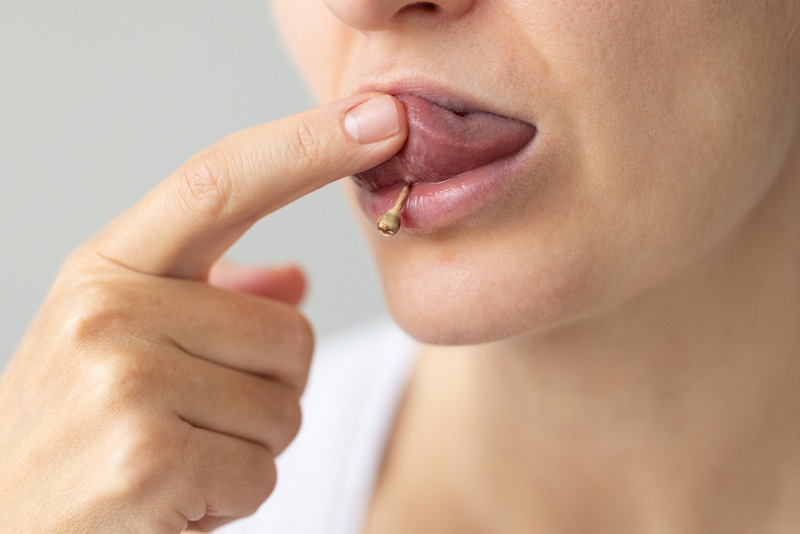Oral piercings have become a popular form of self-expression, offering individuals a unique way to showcase their style. However, many may not consider the potential health risks these piercings can pose. From tongue to lip or cheek piercings, each style has its possible complications that could impact both appearance and oral health. This article delves into the inherent risks associated with oral piercings and offers tips on how to better manage them.
Potential Health Risks
While oral piercings might seem appealing, it’s crucial to be aware of the health risks involved. By understanding these risks, individuals can make more informed decisions about their well-being.
-
Infection: Due to the bacteria-rich environment of the mouth, oral piercings are prone to infections, which can cause swelling, pain, and discharge.
-
Swelling and Bleeding: Tongue piercings, in particular, can cause significant swelling, potentially affecting speech, breathing, and even swallowing.
Dental and Gum Issues
Dental damage is a common concern with oral piercings. Metal jewelry can easily collide with teeth, leading to chips and fractures. Fillings are also at risk, as constant contact can cause them to loosen or break, requiring attention from dental professionals.
Gum issues are another risk factor. Oral jewelry can rub against the gums, resulting in irritation and eventual recession. This alteration can increase tooth sensitivity and, if not addressed, may contribute to periodontal disease. Individuals considering porcelain veneers services in Bethlehem, PA, might later explore restorative measures to address such issues.
-
Dental Damage: Jewelry contact with teeth may lead to chipping or fractures, impacting the integrity and appearance of teeth.
-
Gum Recession: Irritation caused by jewelry can result in gum recession, exposing the tooth root and increasing sensitivity.
Allergic Reactions and Other Complications
It’s important to select jewelry made from hypoallergenic materials like surgical steel or titanium. Allergies can cause uncomfortable reactions such as swelling, redness, and itching. It’s vital to monitor symptoms and consult healthcare professionals if adverse reactions occur.
Beyond allergies, there are other complications to consider. Oral piercings can interfere with daily activities, such as eating and speaking. Additionally, individuals may inadvertently harm their piercings through activities such as biting down on hard objects, leading to injury or discomfort.
-
Allergic Reactions: Some individuals are sensitive to certain metals used in jewelry, potentially causing allergic reactions.
-
Interference with Daily Activities: Oral piercings can impact eating, speaking, and swallowing, necessitating adjustments in behavior and habits.
-
Risk of Jewelry Fracture: Accidentally biting down on jewelry can lead to breaks, requiring quick attention and repair.
As oral piercings can affect one’s smile, individuals may also opt for cosmetic procedures. For instance, teeth whitening services in Bethlehem can be sought by those looking to enhance the appearance of their teeth alongside managing piercing concerns. Combining preventive measures with aesthetic improvements allows for a well-rounded approach to oral care.
Considering Oral Piercings Carefully
Before making a decision about oral piercings, it is important to think about the advantages and disadvantages. Weighing these factors can help you make an informed choice. Speaking to both a piercing professional and a dental expert can provide a broader perspective on your decision.
Professional Advice is Key
Consulting with professionals can provide valuable insights into the impact of piercings on oral health. The advice from experienced piercers and dentists helps you understand the risks involved. Here are some important points to consider:
-
Professionals can inform you about potential complications related to oral piercings.
-
They can guide you on the healing process and what to expect afterward.
Getting professional opinions can help you feel more prepared and confident in your decision.
Choosing the Right Jewelry Material
The choice of jewelry material is very important for oral piercings. Opting for hypoallergenic materials can significantly lessen the chances of allergic reactions. Some helpful tips are:
-
Nickel-free metals can be used for those with sensitive skin.
-
Materials like titanium or surgical stainless steel are good options.
Choosing the right material ensures greater comfort and reduces the risk of irritation in your mouth.
Commitment to Oral Hygiene
Taking care of oral piercings is crucial for preventing infections. A commitment to oral hygiene includes establishing proper care routines. Here are some key practices:
-
Regularly rinsing your mouth with an antiseptic solution helps keep the area clean.
-
Brushing your teeth gently around the piercing site is important.
Maintaining cleanliness not only promotes oral health but also enhances your overall well-being.
Making an Informed Decision
Considering all these factors carefully will lead you to make a balanced decision about oral piercings. Weighing the pros and cons will ensure that you are aware of the potential risks and benefits. Taking the time to educate yourself can help you make a choice that is best for your health and lifestyle.
Maintaining Oral Health
Regular maintenance and care can go a long way in preventing complications. Using non-alcoholic mouthwash keeps the piercing site clean without causing irritation or discomfort. Avoiding habits that could increase the risk of damage, such as playing with jewelry or chewing on hard substances, is essential for preserving oral health.
Regular dental check-ups are highly recommended for individuals with oral piercings. These visits help monitor gum and tooth health, ensuring that any concerns are addressed promptly. An example could include consulting a dentist in Bethlehem, PA, for comprehensive evaluations that can help safeguard oral health long-term.
Closing Remarks
Oral piercings, while fashionable, come with a host of potential risks that shouldn’t be overlooked. From infections to dental damage, these piercings require conscientious care and consideration. By understanding the risks and engaging in preventative measures, individuals can make informed choices about their health. Regular consultations with professionals and adhering to suggested care routines can minimize the likelihood of adverse effects. Ensuring one’s oral health should always remain a top priority when considering any alteration, such as an oral piercing.

